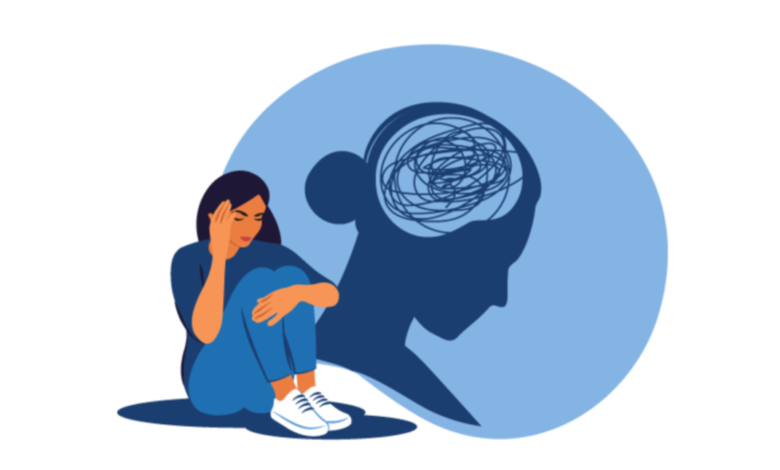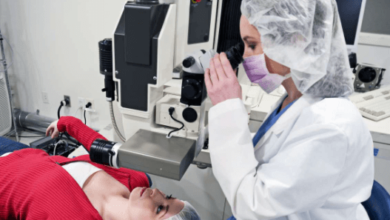When to Seek Help for OCD: Recognizing the Signs

Obsessive-Compulsive Disorder manifests as a mental health disorder which produces repeated thoughts known as obsessions along with compulsive behavioral patterns or mental practices. People experiencing OCD need medical attention because the condition becomes problematic when repetitive obsessive thoughts and compulsive behaviors disrupt their regular activities. Efficient management of OCD depends on proper identification of appropriate help-seeking opportunities.
Understanding OCD
The public tends to mistake OCD symptoms for someone who is both tidy and exceptionally particular about their behaviors and habits. Although serious OCD disrupts the emotional state and personal welfare of people. OCD symptoms differ from ordinary habits and worries because they continue throughout time and become extremely time-consuming and create high levels of distress that lead to severe anxiety. The initial step for seeking suitable help involves recognizing how OCD compels different actions from ordinary behaviors.
Signs Indicating Treatment Need
1. Persistent and Uncontrollable Obsessions
People with obsessive-compulsive disorder experience ongoing distressing mental intrusions, which frequently take the form of distressing thoughts and images or abnormal urges. A person suffering from OCD may experience different types of obsessions, including worry about touching contaminated objects, preoccupation with arrangement symmetry, or persistent thoughts about violent or forbidden material. Consulting a mental health expert is crucial if these uncontrollable obsessions create anxiety and distress.
2. Compulsive Behaviors That Disrupt Daily Life
People who do compulsive behaviors carry out repetitive actions as a way to decrease their anxiety about obsessions. The repetitive actions which serve to counter anxiety include constant handwashing and recurrent checking of locks and repeated counting of objects. These temporary relief actions typically transform into persistent cycles which control how a person performs their routine activities and complicates their everyday tasks. Such compulsive behaviors need professional intervention because they interfere with maintaining responsibilities as well as work and relationships.
3. Increased Anxiety and Emotional Distress
Intense anxiety and OCD typically occur together during OCD experiences. People experience overwhelming distress when they fear something bad will happen if they skip completing their compulsive routines. The continuous experience of anxiety across time results in the development of feelings about hopelessness combined with frustration together with emotional exhaustion. You should seek help for OCD-related anxiety whenever it alters your mental state negatively.
4. Spending Excessive Time on Rituals
The cause for concern about OCD management occurs when you spend large portions of your day performing compulsive actions. Rituals and cleaning activities lasting too long create work interference as well as social relationship problems. Entire activities and important relationships become challenging because of your compulsive behaviors which require you to get assistance from professionals.
5. Avoidance Behaviors
People who have OCD tend to eliminate both spaces and interactions with others that make their obsessive thoughts act up. A person who suffers from contamination-related OCD conditions would stay away from both handshaking and public restroom use. The act of avoiding many situations will ultimately restrict daily living to the point where basic activities become challenging to perform. A person needs professional mental healthcare when avoidance behaviors start causing disruptions to daily responsibilities.
6. Declining Mental Health and Coexisting Conditions
People with OCD commonly develop additional mental conditions including depression together with generalized anxiety disorder and substance abuse problems. Persistent symptoms that include either sadness or irritability along with sleep disturbances or loss of interest in things you generally like may indicate that your mental health struggles from OCD more strongly. Specialized treatment at an early stage of OCD can stop additional conditions from developing.
Read also: Owning a Caravan Park: Your Path to a Profitable Lifestyle Business
When to Seek Professional Help
The understanding that OCD disrupts your regular activities marks your initial move toward recovery. Seeking professional help from a psychiatrist through oladoc during an early stage will stop OCD symptoms from becoming worse. Professional treatment options include:
- Usual treatment for OCD patients includes Cognitive Behavioral Therapy (CBT) which enables people to recognize obsessions then overcome them while working toward decreasing compulsive behaviors.
- Professional therapists use ERP as a form of treatment because it lets patients face uncomfortable situations while under their control to eliminate their obsessions and compulsions.
- The brain chemistry of patients benefits from prescribed Selective Serotonin Reuptake Inhibitors (SSRIs to regulate symptoms.
- Two important resources for OCD treatment consist of joining support groups with people who experience similar difficulties and seeking individual therapy sessions.
Conclusion
The treatment of OCD requires proper intervention because this condition produces significant difficulties for patients. Persons with persistent obsessions and compulsions facing life disruptions must consult professionals for essential help with regaining control. The correct treatment of OCD enables you to live a satisfying balanced life despite the condition.



